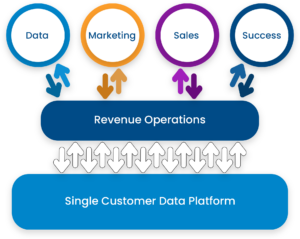Diverse Heroes Emerge In The Automotive Industry

Reese Cherry, a vehicle architecture engineer with Ford, has been granted six patents related to the … [+]
In an unexpected landmark decision, the U.S. Supreme Court ruled in June that employers could not discriminate against LGBTQ (lesbian, gay, bisexual, transgender, and queer) workers for their sexual orientation or gender identity. As an automotive executive, I wondered how the Supreme Court’s decision affected the 100+-year-old automotive industry, which was known for its “car guy” culture and “good ole boys” executive circles for most of its existence. And while this story began as an industry-focused analysis of LGBTQ diversity and inclusion initiatives, it ended as a testament to a corporate and societal evolution – one that encouraged an iconic corporation to admit a 52-year-old misdeed and allowed a brave group of executives to share their authentic selves.
Discrimination remains widespread
LGBTQ workplace discrimination is rampant in all industries. Millions of Americans have expressed negative sentiments and disparaging views, whether for personal or religious reasons, of those with non-conforming sexual orientations and gender identities. As a marginalized group, nearly 1 in 4 LGBTQ employees experience workplace bullying and public humiliation, according to a Ford Foundation-sponsored study by the Kapor Center. In another study sponsored by Ernst & Young, Out Leadership found that 47% of LGBTQ workers experienced microaggressions, and as a result, 70% engaged in covering behaviors to conceal their LGBTQ characteristics.
Beck Bailey, Workplace Equality Director with the Human Rights Campaign (HRC), reports that 53% of LGBTQ workers heard jokes about lesbian or gay people at least once in a while, and 20% stayed home from work to avoid discrimination. Formulating opinions about LGBTQ workers based on their assumed characteristics – and not their merits – also explains why LGBTQ workers are more likely to face income inequality and poverty, according to UCLA’s Williams Institute. Given these harsh realities, it’s no surprise that 46% of LGBTQ workers say they are closeted at work.

Martine Rothblatt, CEO of United Therapeutics and Founder of Sirius XM (Photo by Nicholas Hunt/Getty … [+]
Discrimination affects the LGBTQ community differently, which explains why some subsets are more likely to identify at work: lesbians are the most likely; gay men are second; and transgender people the least. Martine Rothblatt, CEO of United Therapeutics and Founder of Sirius XM, is transgender and a well-known advocate for LGBTQ rights. She states, “I believe that transgender people do, in fact, face more discrimination than other members of the LGBTQ community. Statistically, our numbers are smaller, and the general perception towards the transgender group remains negatively biased.”
Suzanne Goldberg, one of the country’s foremost legal experts on LGBTQ matters and a professor at Columbia Law School, says, “I wish we were at the point that blatant LGBTQ discrimination had come to an end, but unfortunately, the existence of anti-discrimination protections does not put an end to discrimination … targeted hostility and harassment remain a serious problem.” In fact, before the Supreme Court decision, it was legal in most states to fire an employee for their sexual orientation or gender identity. Rothblatt adds, “America still has much progress to make when it comes to LGBTQ inclusion in corporate environments.”
Automakers respond with diversity and inclusion initiatives
Every automaker has policies that prohibit discrimination against LGBTQ workers, but these policies do little to advance equality. Professor Goldberg clarifies, “There is a big gap between prohibiting discrimination and ensuring a diverse and inclusive workplace. Law is essential, but so are the policies, commitments, and initiatives that support LGBTQ and other employees.” The HRC’s Corporate Equality Index (CEI) is a well-respected barometer for a company’s LGBTQ initiatives as it measures areas like employee benefits, supplier diversity, and anti-discrimination practices. In 2004, Ford became the first automaker to receive a 100% score on the CEI – today, this ranking includes General Motors, Tesla, and the U.S. subsidiaries of Hyundai, Subaru, and Toyota. “Subaru is proud to have earned a perfect score of 100 percent on the Corporate Equality Index (CEI),” comments Peggy Verdi, VP of Human Resources. Other automakers with high marks include FCA and the U.S. subsidiaries of Daimler, Honda, and Volkswagen.
Employee resource groups (ERGs) help automakers support and mentor their LGBTQ employees. Michael Palese, a spokesperson for FCA, states, “Gay and Lesbian Alliance (GALA) is a long-established, thriving, and active group within the FCA community.” In Toyota’s ERG, nearly 1,300 members, including LGBTQ allies, are spread out between the U.S, Canada, and Mexico. At Daimler, ERGs are found in its truck division, Mercedes-Benz, and its captive finance unit, Daimler Financial. In addition to supporting existing LGBTQ employees, ERGs help recruit new ones by introducing job candidates to automaker hiring teams seeking diverse talent.
Some automakers have recruitment campaigns targeted toward LGBTQ workers. A General Motors spokesperson explains, “We actively recruit LGBTQ+ talent through avenues such as Out in Science, Technology, Engineering, and Mathematics; Out For Undergrad; and Reaching Out MBA.” FCA, Ford, and Toyota have similar efforts and recruit directly from collegiate on-campus LGBTQ groups. Toyota also supports scholarships for LGBTQ college students via affiliations with advocacy organizations.
Automakers also show their support by sponsoring LGBTQ parades and hanging rainbow-colored flags during Pride month. “Over the past two years, the DRIVE Committee has hosted meaningful Pride Celebrations at its North American Headquarters and marched in New York City’s annual Pride parade, which [recently] celebrated the 50th Anniversary of Stonewall,” states a spokesperson for Jaguar Land Rover. FCA, Ford, and General Motors have LGBTQ supplier diversity initiatives via a relationship with the National Gay & Lesbian Chamber of Commerce, which certifies LGBTQ business owners after an extensive vetting process. Justin Nelson, Co-Founder & President of the National LGBT Chamber of Commerce, notes, “NGLCC, the business voice of the LGBT community, is proud to partner not just with some of America’s top automotive producers, but with a majority of the Fortune 500 corporations.” And while no automaker recognizes LGBTQ car dealers in their dealer diversity objectives, some are considering them as a way to encourage LGBTQ inclusion among the one million people that work in new-car dealerships.
Inclusion attracts customers
Gallup Research found that nearly 5% of the population identifies as LGBTQ. This stat reaches 8% for millennials, which is explained by a more accepting, younger generation. Thus, millions of LGBTQ Americans are either car buyers or purchase influencers. According to research by CMI, nearly 1 in 5 LGBTQ Americans plan to purchase a car within the next 12 months. Those buyers are loyal to LGBTQ causes, with 76% buying from brands that are supportive of their community, and 86% intending to boycott brands seen as anti-LGBTQ. And these statistics don’t account for friends, families, and allies of LGBTQ consumers, which amplify their buying power.
LGBTQ employees bring distinctive insights to automakers’ advertising. For example, as Rothblatt observes, “Transgendered people have the very unique benefit of seeing things from both male and female perspectives, and I think we can often be very valuable employees.” General Motors was the first automaker to run an LGBTQ-specific ad with its Saturn brand in 1995. Zafar Brooks, Director of Diversity & Inclusion with Hyundai, notes that Erik Thomas, a senior marketing executive who identifies as LGBTQ, was responsible for many successful advertising campaigns, including the Hyundai Out for Greatness content series, which celebrated the LGBTQ community. Sandra Phillips Rogers, Toyota’s Chief Diversity Officer and General Counsel, comments, “Our Lexus division collaborates with LGBTQ partners across TV, digital, print, and radio platforms.”
Other examples of employee contributions are found at Ford and General Motors. Reese Cherry, pictured above, is a vehicle architecture engineer with Ford and has been granted six patents related to the all-new Ford Bronco despite graduating college just four years ago. Reese states, “I’ve had a lot of valuable experience at Ford and part of that is due to the inclusive work culture. I work in an environment that enables people to be themselves.” Dr. Arianna Morales, a General Motors staff research scientist with 24 U.S. and international patents and two more pending, was also recognized as the LGBTQ Engineer of the Year recipient by the National Organization of Gay and Lesbian Scientists and Technical Professionals. The significant contributions of Cherry and Morales exemplify the importance of inclusive environments.
Losing talent is costly
While the HRC found that 1 in 4 LGBTQ workers stayed in a job primarily because the environment was accepting, the Kapor Center found that 64% of bullied LGBTQ employees reported that negative experiences contributed to their decision to leave. Maintaining an inclusive environment, therefore, must be a companywide initiative, even in global offices in countries that are hostile towards LGBTQ people. Jim Fitterling, CEO of Dow, who came out in 2014, provided this advice to automakers, “As employers, our most important objective is to provide a safe working environment for our people. We think of offices and sites like an embassy. No matter what is happening outside, inside our people should be safe and respected. Even in a state or country where an LGBTQ+ person might not feel safe due to local laws, they need to feel safe when they come to work.”
A well-known lesson of losing LGBTQ talent is found in the story of 82-year-old Lynn Conway, professor emerita at the University of Michigan. In 1964, IBM hired Conway as a computer scientist, where she made discoveries that are still used in modern computers today. But after IBM’s CEO, T. J. Watson, Jr., learned Conway was transitioning her gender, she was abruptly fired on August 29, 1968. Conway believes Watson feared employing a transgender person would embarrass the company. But IBM’s loss quickly became an asset for others. Over the next several decades, Conway became one of the computer industry’s most respected scientists, making innovations and leading research at Xerox, MIT, and the Department of Defense – while receiving four honorary doctorate degrees and other recognitions. Mark Schlissel, President of the University of Michigan, remarks, “It was a tremendous honor to present [Conway] with an honorary doctorate for her outstanding accomplishments as a professor, engineer, scientist, and internationally recognized transgender advocate.”
Conway’s story is a warning for all companies, according to HRC’s Bailey: “Lynn’s story so clearly captures the business impact of failing to be an inclusive and welcoming employer through the loss of talent, innovation, and lucrative patents. This cautionary tale extends to all workers and their contributions to the business – engineers such as Lynn as well as store clerks, manufacturing line workers, and office personnel. No business can afford to lose talented and productive staff simply because they are LGBTQ.” Despite her story becoming public, Conway stated IBM never apologized for its actions, even after she contacted its former CEO, Louis V. Gerstner, in 2000.
To learn their stance, I contacted IBM’s Chief Communications Officer, Jonathan Adashek, whom I knew from his stint in the automotive industry. To my surprise, within 24 hours, IBM expressed “regrets” for Conway’s experience, with a spokesperson stating, “Given the lack of understanding in 1968, it must have been extremely challenging to come out as transgender, and we deeply regret the hardship Lynn encountered. Our senior leadership has been in touch with Lynn and has apologized to her that, in 1968, IBM did not have the policies, education, support, and assistance in place that we now provide to our transitioning employees.” The IBM spokesperson further stated, “IBM doesn’t tolerate any discrimination of any form, so we deeply regret Lynn’s experience and wish it had been different. She has contributed much to the world. We are proud of all she has accomplished and wish we could have had more time with Lynn as an IBMer.”

Lynn Conway, professor emerita at the University of Michigan.
According to Conway, these statements represent the first time IBM shared any semblance of regret. She adds, “In retrospect, I’ve actually come to visualize what IBM did as one of the best things that ever happened to me: I was forced into total self-reliance, out there on the streets, for survival.” Conway doesn’t want monetary compensation from IBM and instead wants her experience to be turned into something favorable for the LGBTQ community. “Luckily, I survived, but many more didn’t.” Both Conway and IBM confirmed that they remain in communication to find a formal resolution to the 1968 termination.
An inaugural group of heroes emerge
When this story began, there were no publicly-known LGBTQ leaders employed in the automotive industry. To understand this, I contacted Land O’Lakes CEO, Beth Ford, who has been out for her entire career, for an explanation. Ford explains, “I would note that given the need to perform and deliver at your very best, you have to show up authentically as yourself. At least, I believe that. Does that mean self-identifying? Well … life is complex. A career isn’t separate and in a silo, so the best decision on that account is what works for your whole life.” As Ford explained, the decision to come out is complicated, and the choice individuals make is affected by many variables, whether personal or career-related. So, after speaking with several automaker media teams, it came as a surprise when I learned of six courageous executives that were willing to share their identities in this article to inspire other LGBTQ workers to express their authentic selves:
- Ford: Alex Purdy, Director of Business Operations for Enterprise Connectivity, and Julien Jacquet, Chief Product Officer, Ford Credit.
- Jaguar Land Rover: James Hunt-Davies, Vice President of Human Resources.
- General Motors: Greg Hagy, Vice President of Global Corporate Development and Mergers & Acquisitions.
- Nissan: Travis Parman, Vice President, Communications, North America & International Communications, and Global Engagement.
- Volvo: Greg Nee, head of Digital, Americas, and a member of the Americas Executive Management Team.
With nearly half of LGBTQ employees unwilling to come out at work for fear of retaliatory actions or limited career potential, this inaugural group’s decision is a milestone worthy of recognition and praise. As Conway emphasizes, “LGBTQ heroes are found in all industries.”
“The world is changing fast but there still remains a tremendous amount of important work ahead for all in transforming the landscape of the LGBTQ group for the better. Education, love, and acceptance will be the answer.” – Martine Rothblatt
Lynn Conway’s story epitomizes why the road to equality is long and winding. Today, IBM is at the forefront of support for LGBTQ issues and considered one of the world’s most diverse and inclusive companies, but it took 52 years for the company to publicly express “regret” about its misdeed. While achieving equality will not come soon, former New Jersey Governor, Jim McGreevey, who came out in 2004, provides optimism, “There will inevitably be more LGBTQ leaders in American corporations in the next decade, simply because corporations seek the best talent and deem not to exclude persons for personal bias.” And he is right. LGBTQ initiatives are more than practices meant to ensure that automakers abide by federal law; they are also survival tools in times of rapid techno-social change. “The result for LGBTQ people,” Conway explains, “You now have far more liberty to fully participate in our society, and to become the “best you” you can be!”








